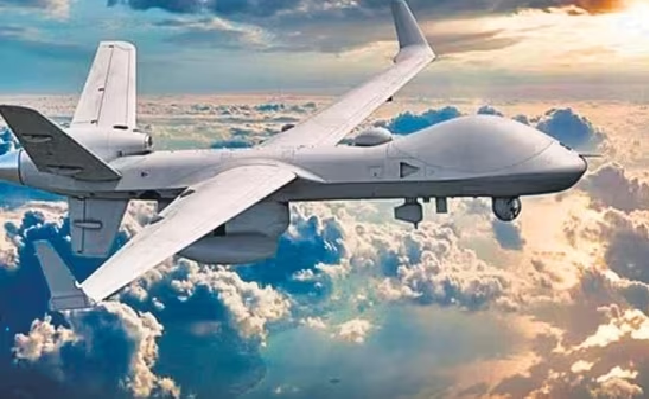Continuous downpour submerges Kolkata, Jodhpur Park receives highest rain
.gif)
.gif)

India is set to begin the acquisition process for 31 MQ-9B remotely piloted aircraft systems (RPAS) from the United States this week.Officials, who wished to remain anonymous, revealed that a letter of request (LoR) will be issued to the US government to initiate the purchase under the foreign military sales (FMS) program.
The deal, estimated to be worth $3.07 billion, will bolster India's military capabilities. The FMS program, managed by the Defense Security Cooperation Agency (DSCA) for the US Department of Defense (DoD), facilitates the government-to-government sale of US-built military platforms, along with services and training. The Indian LoR will outline the requirements of the three services, equipment details, and proposed procurement terms. India's defense acquisitions council (DAC), the apex body for weapons procurement, granted its acceptance of necessity (AoN) on June 15 for the purchase of the 31 MQ-9B General Atomics high-altitude long endurance (HALE) drones.
Following the LoR, the US will respond with a letter of offer and acceptance (LoA) after a formal congressional notification. This will pave the way for negotiations between India and the US, considering the price and terms offered to other countries.
The contract negotiation committee will finalize the deal, which will then be presented to the cabinet committee on security, led by Prime Minister Narendra Modi, for final approval. The proposed acquisition was highlighted in a joint statement issued during Prime Minister Modi's state visit to the US on June 22. The statement revealed that General Atomics, the manufacturer, will establish a comprehensive global maintenance, repair, and overhaul (MRO) facility in India to support the country's long-term goal of enhancing indigenous defense capabilities.
While the opposition Congress party raised questions regarding pricing, acquisition procedures, technology transfer, and self-reliance in defense, top government officials defended the deal. They emphasized that India would negotiate a competitive agreement with the US, ensuring transparency, critical technology transfer, support for indigenous defense development by the Defense Research and Development Organisation (DRDO), and procurement based on the operational requirements of the armed forces.
Out of the 31 drones, the navy will receive 15, while the army and Indian Air Force will each receive eight. Ten drones will be purchased off the shelf, while the remaining 21 will be assembled in India. The US has offered the 31 drones to India for $3.07 billion, including weapons, sensors, ground control stations, ground data terminals, ground handling equipment, spares, and logistics support. However, the cost is subject to negotiations.
India aims to secure a higher element of technology transfer, potentially doubling the current offer from 8-9% to 15-20%. Assembled in India, the versatile MQ-9B platform will possess the capability to strike targets with its onboard weapons, conduct intelligence, surveillance, and reconnaissance (ISR) operations, and fulfill roles in electronic warfare, defensive counter air, and airborne early warning.